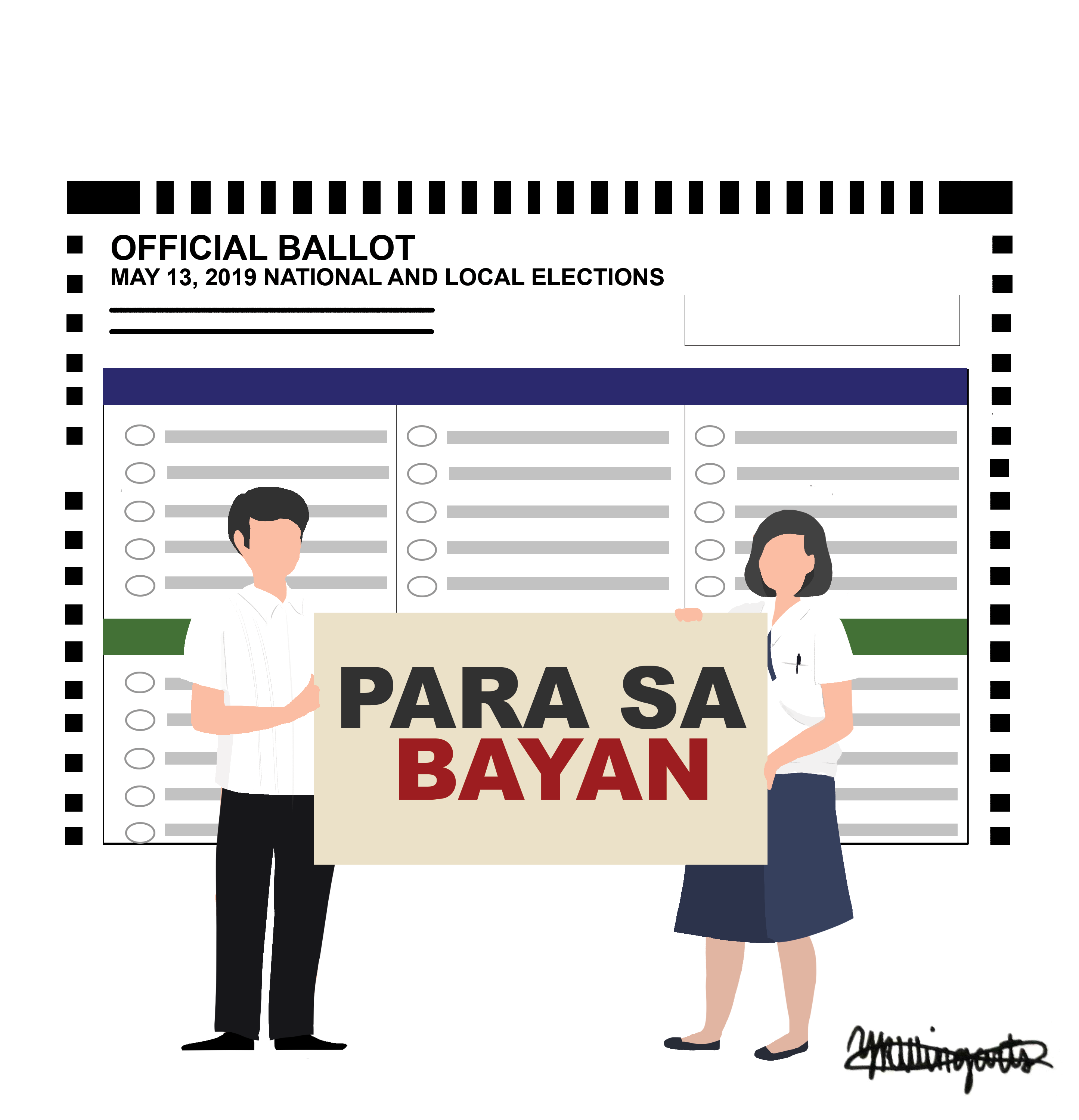By ANA GABRIELLE CEGUERA

THE ARTLET community continues to constantly be at the forefront of movements against injustices and calls for accountability. In the recently concluded midterm elections, there is no doubt Artlets played a huge role in influencing others to exercise their right to vote and determine the nation’s history.
As students of the Faculty of Arts and Letters (AB) who have always been exposed to the culture of politics and governance, it is undeniable that the Artlet community has the leverage in choosing their candidates. With this knowledge at hand, one must know how influential an Artlet’s vote could be.
“Napakalaki ng impluwensiya natin, especially in the University, given that we, of course, are from the liberal arts. We are exposed to politics, different political parties, mass organizations, so lahat, halo-halo,” sociology professor John Christian Valeroso told the Flame.
“As a former AB student, it’s about influencing other people,” he added. “I think that’s the power of AB students: our sentiments are always supported by research, backed-up by principles na hindi lang based on sentiments, but based on study, research, and learning from our mentors.”
Artlets are also more aware of the issues affecting the country compared to other students, political science professor Atty. Rafael Bautista said.
But how exactly do Artlets scrutinize the candidates they will vote for?
Redeeming qualities
Artlets look at the qualities of the candidates, their stance on different issues, and the performance of their political parties, Political Science Department Chair and political analyst Dennis Coronacion said.
Concepts and qualities associated with the word “liberal” are also key factors that guide Artlets in choosing worthy candidates, history professor Lee Mark Banaag added.
“Is the candidate a kind of person who values equality? Does he push for laws that have something to do with equality between genders?” he said.
One of these concepts is the justice system. Artlets would most probably look for candidates with a strong sense of justice or “candidates who are sensitive to the deprivation of other people” according to Banaag.
The history professor also said that the kind of candidates Artlets campaigned for is reflective of the values they possess.
Meanwhile, Bautista credited the Faculty for housing 13 different disciplines that allow Artlets to better understand issues in the country. This played a big role in their candidate selection and how they influenced other people to vote for the right candidates, he posited.
But what are the views of Artlets themselves on the candidates?
The Artlets’ voice
As a responsible and educated youth voter, Asian studies student Calista Ceguera searched for candidates who would bring forth economic progress and stability alongside peace and strength to the country.
“This can be done through thorough evaluation of [their] track record and performances at debates, as well as loyalty to the motherland,” she said.
It is also necessary for voters to research on the candidates, history major Jay Briones said, stressing that Artlets should be at the forefront of the battle against disinformation.
“If we hear someone spreading misinformation, we should tell them and the people who listened to them the truth,” he explained.
When it comes to the factors Artlets look for in the candidates, journalism student Ella Escalante said she considered the candidates’ experiences, platforms, principles, ideologies, and their compassion for the nation and the people.
Violence against women and children, labor issues, the plight of the Lumad, delivery of justice and human rights were some of the issues that Artlets deemed should be the focus of the candidates’ platforms.
For English language studies major Riva Baring, the most important thing she looked for in a candidate was simple: a leader who is not only knowledgeable but also has the heart to serve and help the people.
Briones said the best thing Artlets could do is to inform people of history—“the number of lives that were lost just for the right to vote, the right to self-determination.”
Ceguera added that it is their duty to present people with different perspectives on different candidates to guide them in their decision making.
Lastly, Godino reminded Artlets to be active participants in democracy. “Ang mga kandidato na nais nating magrepresenta sa’tin ay magagawa lang ang kanilang mga plataporma kapag ang tao ay nagdesisyon na mailuklok sila.” F
Editor’s Note: This article was originally published in Vol. 54, Issue No. 4 of the Flame. View the entire issue through this link.



